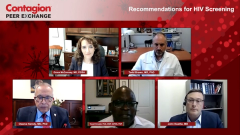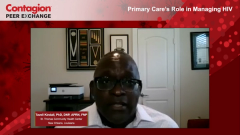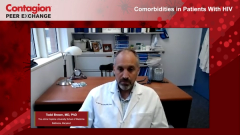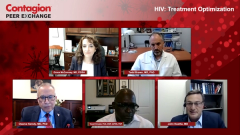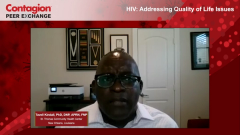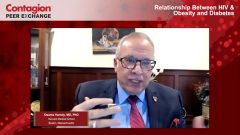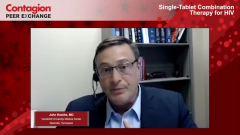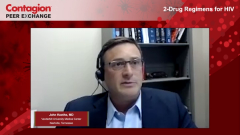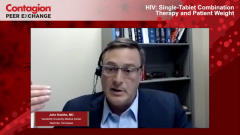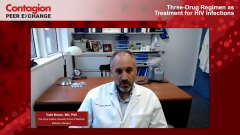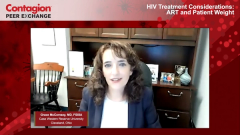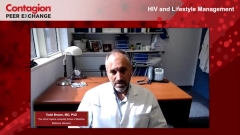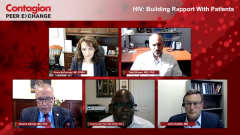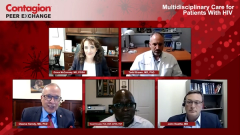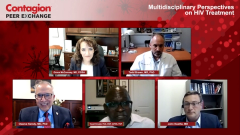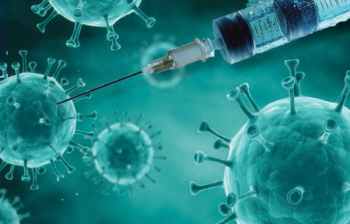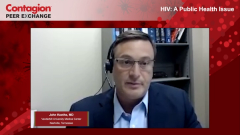
HIV: When to Initiate Antiretroviral Therapy
Dr Tavell Kindall reacts to the importance of rapid initiation of antiretroviral therapy for patients with HIV.
Episodes in this series

Grace McComsey, MD, FIDSA: Let me ask Dr Kindall, Tavell, how important is rapid initiation? Obviously, all of us talk about it. In practice, when you have a patient newly diagnosed, first time you see them, how important is that, and do you use it frequently?
Tavell Kindall, PhD, DNP, APRN, FNP: It is very important, and in my practice, I do use it frequently. I have the benefit of being in an FQHC [Federally Qualified Health Center], where the primary care providers there who are screening everyone who comes into the clinic, if we find someone who’s positive, I can see them that day and get them started immediately. It’s a huge benefit to patients, and they hopefully won’t progress to have any significant complications as it relates to advancing HIV disease because they’re now on medication to control their infection. And then there is a population level benefit in that they’re not viremic and otherwise in a position to transmit HIV to someone else. It’s really interesting sometimes when you talk to people about wanting to get them started sooner, some people believe that, like when the guidelines were older, you waited until your CD4 count got to a certain level and those kinds of things. We no longer do that, and for a number of patients as well as health care professionals, they don’t realize that we’re starting people as soon as we find out that the infection is there. There’s no reason now to wait. We have safe medications that we can start most people on that day, and if we need to make changes, we can certainly make changes.
Just today there was a gentleman who I saw who was diagnosed in the late 1980s but had never taken antiretroviral therapy. He was the most amazing person to talk to and ask him what was going on. This is to the point that we mentioned earlier about internalized stigma and not wanting to be treated as a guinea pig and all the other things that have been reported among patients and things that we’ve uncovered over the years, people with HIV infection who were not wanting to go under care. He was excited today, and we started him today on antiretroviral therapy, and we’ll see how he does. I’m excited for him because what he does not realize, to the point of my colleagues who talked about some of the inflammatory things that we see with HIV infection, he didn’t even realize that a lot of the inflammatory issues that he has are likely related to the fact that, although he has not succumbed to HIV and he believes that he is otherwise healthy, and it’s not progressed to AIDS—which we’re actually waiting to see. We don’t really know. We’re waiting on the CD4 count to see what it is. But for him, he had all these other things going on, and it’s going to be interesting to see, once we cool his inflammatory process down with hopefully him being on antiretroviral therapy and being on it consistently and being adherent to it, will this make a difference in his other issues that he’s having that are inflammatory in nature? It’s important that we get people started as soon as possible.
Grace McComsey, MD, FIDSA: Thank you for watching this ContagionLive® Peer Exchange. If you enjoyed the content, please subscribe to the e-newsletter so you can receive upcoming Peer Exchanges and other great content. Thank you for listening.
Transcript Edited for Clarity
Newsletter
Stay ahead of emerging infectious disease threats with expert insights and breaking research. Subscribe now to get updates delivered straight to your inbox.

